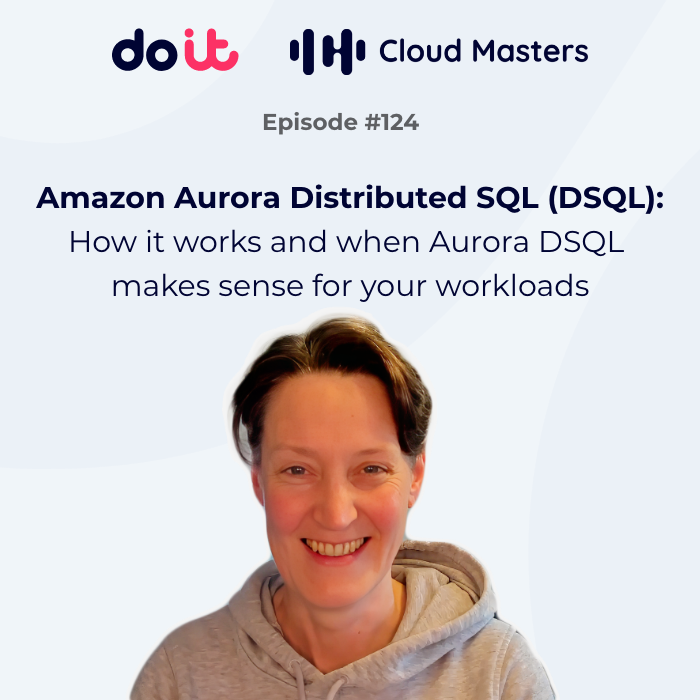
Amazon Aurora Distributed SQL (DSQL): How it works and when Aurora DSQL makes sense for your workloads
Learn when Amazon Aurora DSQL is the right choice for your applications, what changes you’ll need to make during migration, and how to handle its
View all DoiT Cloud Intelligence features
Insights, tips and perspectives from cloud experts
Foundational expertise and future-ready recommendations
In-person and virtual tech talks
Meet the team leading DoiT
Hear what’s new at DoiT
Unlock revenue through expert partnerships
Discover career opportunities
Award-winning partners of cloud providers

Learn when Amazon Aurora DSQL is the right choice for your applications, what changes you’ll need to make during migration, and how to handle its
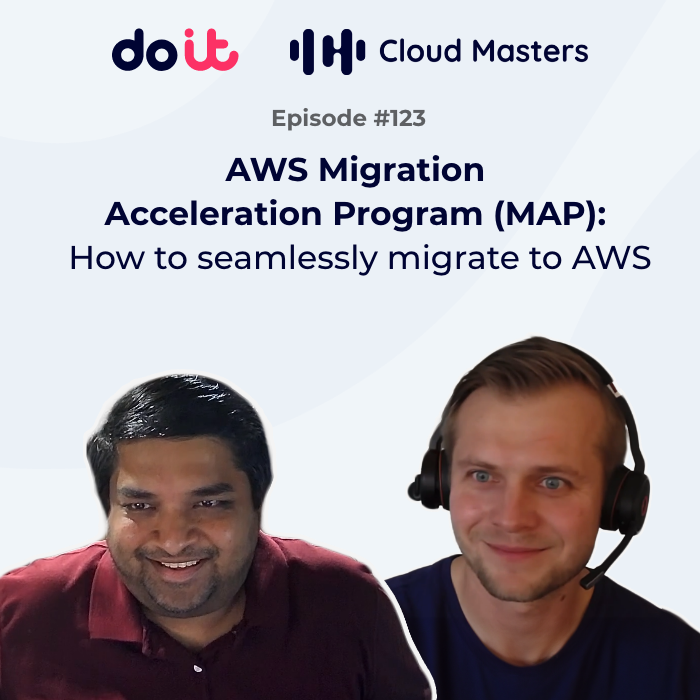
We’re joined by two AWS MAP experts to delve into the AWS Migration Acceleration Program (MAP). We go through its three phases: Assess, Mobilize, and
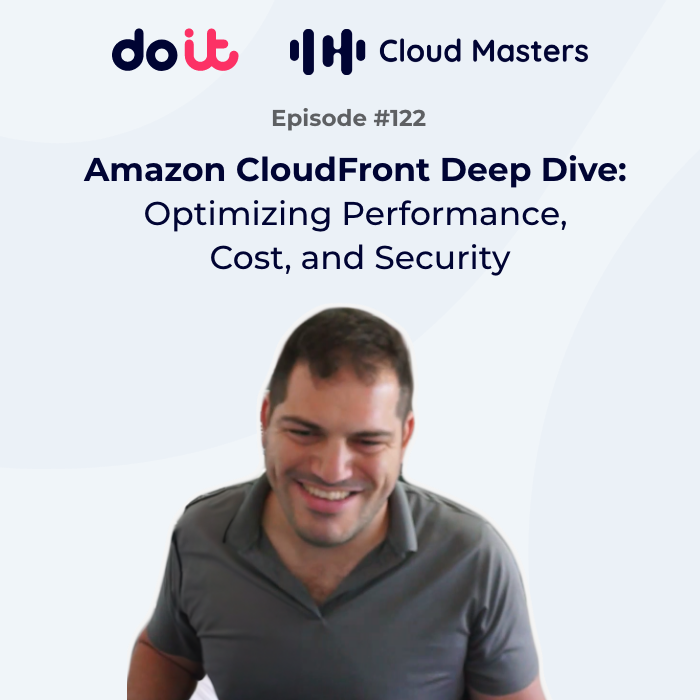
In this episode, we dive into Amazon CloudFront, exploring its benefits, use cases, and cost optimization strategies. Specifically, we go into the importance of Average
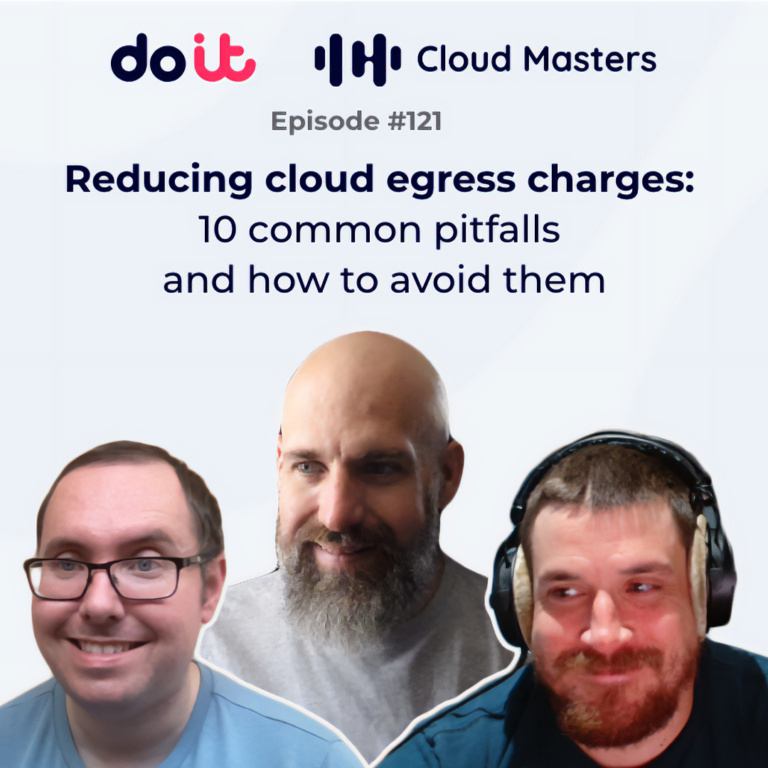
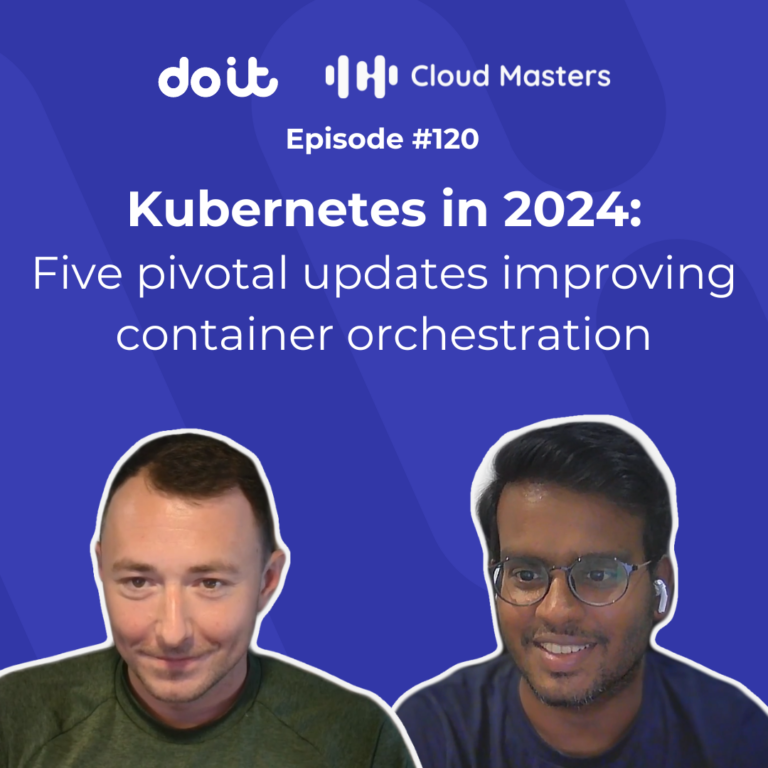
We cover the 5 most significant Kubernetes updates of 2024: Gateway API, Pod in-place resizing, Container resource-based autoscaling, Support for Swap, and User Namespaces.

Everything you need to know about Cloud Marketplaces: Best practices for listing and co-selling, pitfalls to avoid, and lessons learned from our guests’ own experiences
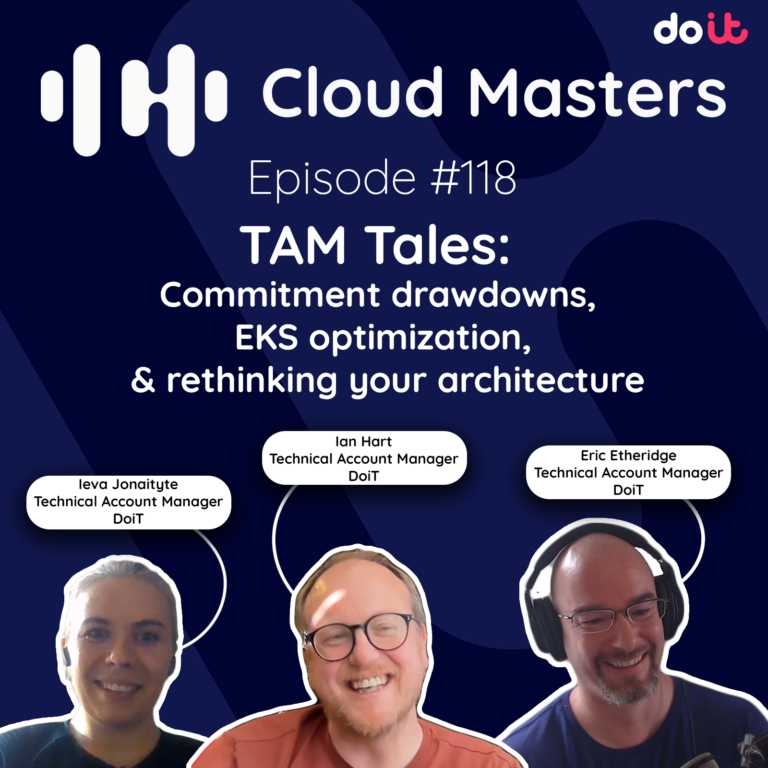
Three Technical Account Managers (TAMs) from DoiT share real-life stories about overspending on cloud and managing cloud commitment drawdowns, with practical lessons and strategies for
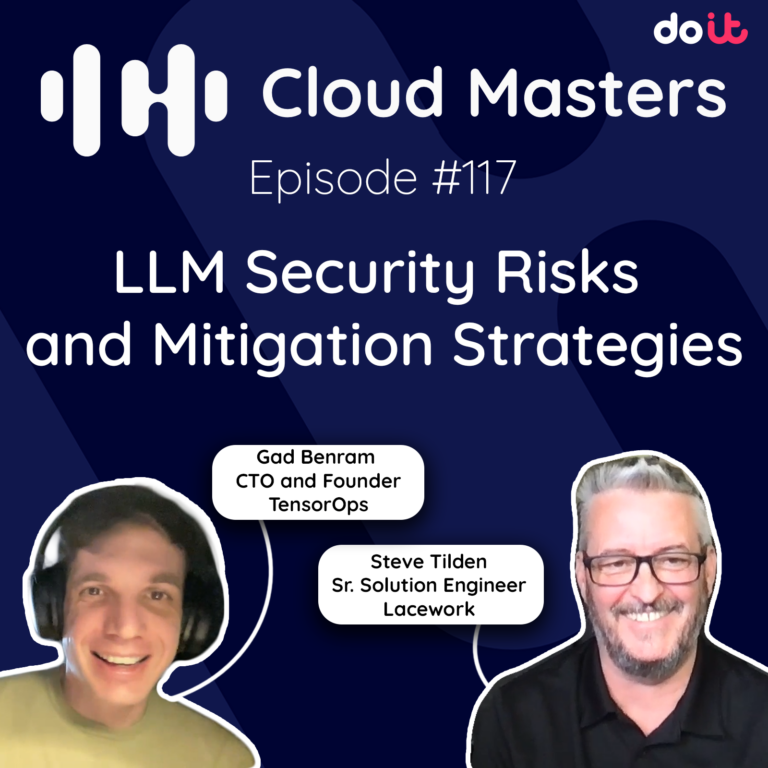
We discuss the top security risks to be aware of when implementing LLMs in your product, and how to prevent them from occurring in the
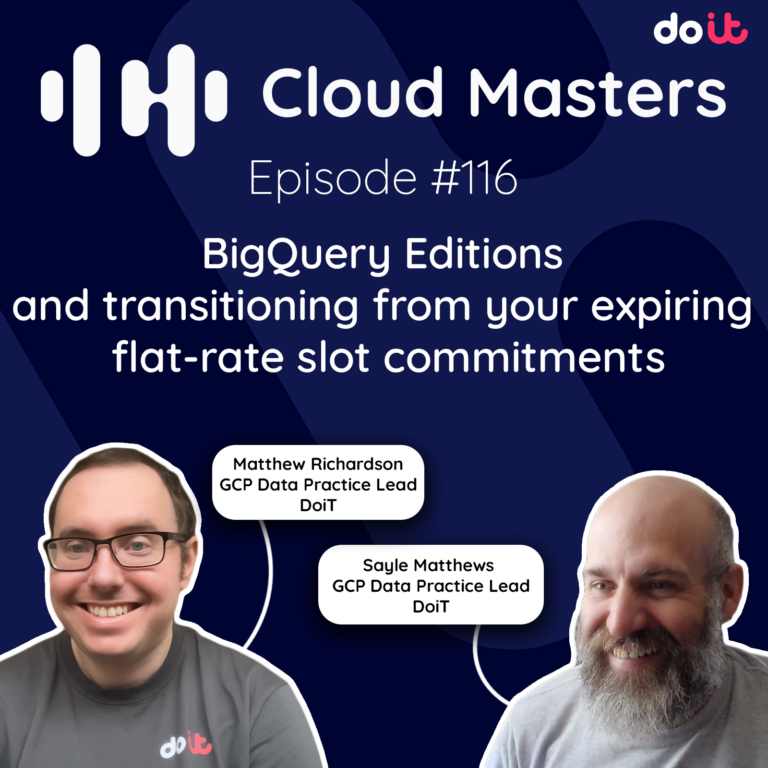
We’re joined by two BigQuery specialists to cover how to transition from flat-rate to BigQuery Editions and on-demand pricing without overspending.
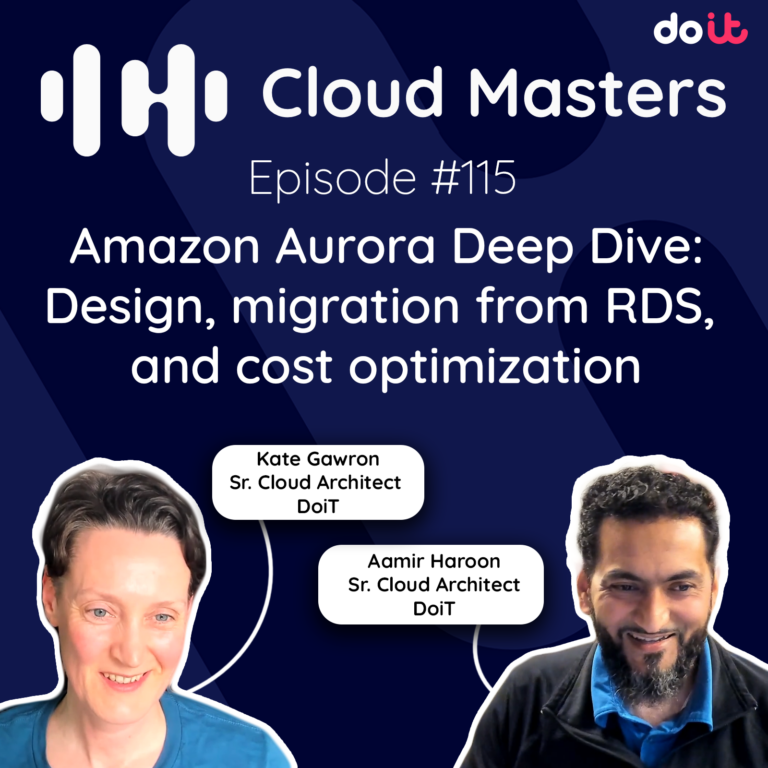
Covering when to use Aurora vs. RDS, common challenges when optimizing Aurora after migrating from RDS, I/O optimization and when I/O-optimized makes sense, and how

Learn when Amazon Aurora DSQL is the right choice for your applications, what changes you’ll need to make during migration, and how to handle its unique approach to optimistic locking.

We’re joined by two AWS MAP experts to delve into the AWS Migration Acceleration Program (MAP). We go through its three phases: Assess, Mobilize, and Migrate & Modernize; and the program’s framework, funding opportunities, and common misconceptions. More specifically, we discuss the importance of accurate capacity planning, TCO calculations, and tagging for successful migrations.
We also cover the critical role of project management, stakeholder involvement, and adhering to AWS Well-Architected Framework principles. The conversation touches on challenges in modernizing legacy applications, the significance of proper landing zone setup, and strategies for post-migration optimization. Finally, we conclude with best practices for cloud migrations, emphasizing the importance of involving skilled cloud architects and planning for the unpredictable nature of migration projects.

In this episode, we dive into Amazon CloudFront, exploring its benefits, use cases, and cost optimization strategies. Specifically, we go into the importance of Average Object Size (AOS) when wanting to sign a CloudFront PPA. We also discuss how using CloudFront saves you on data transfer costs compared to alternative solutions, its versatility in handling both static and dynamic content, and the importance of page-loading time for user experience. Finally, we conclude with an examination of security considerations when using CloudFront, including strategies for mitigating DDoS attacks while keeping costs in check.


We cover the 5 most significant Kubernetes updates of 2024: Gateway API, Pod in-place resizing, Container resource-based autoscaling, Support for Swap, and User Namespaces.

Everything you need to know about Cloud Marketplaces: Best practices for listing and co-selling, pitfalls to avoid, and lessons learned from our guests’ own experiences helping companies navigate marketplace listings.

Three Technical Account Managers (TAMs) from DoiT share real-life stories about overspending on cloud and managing cloud commitment drawdowns, with practical lessons and strategies for optimizing your own cloud costs.

We discuss the top security risks to be aware of when implementing LLMs in your product, and how to prevent them from occurring in the first place.

We’re joined by two BigQuery specialists to cover how to transition from flat-rate to BigQuery Editions and on-demand pricing without overspending.

Covering when to use Aurora vs. RDS, common challenges when optimizing Aurora after migrating from RDS, I/O optimization and when I/O-optimized makes sense, and how to architect your Aurora databases for cost optimization.

Learn when Amazon Aurora DSQL is the right choice for your applications, what changes you’ll need to make during migration, and how to handle its unique approach to optimistic locking.

We’re joined by two AWS MAP experts to delve into the AWS Migration Acceleration Program (MAP). We go through its three phases: Assess, Mobilize, and Migrate & Modernize; and the program’s framework, funding opportunities, and common misconceptions. More specifically, we discuss the importance of accurate capacity planning, TCO calculations, and tagging for successful migrations.
We also cover the critical role of project management, stakeholder involvement, and adhering to AWS Well-Architected Framework principles. The conversation touches on challenges in modernizing legacy applications, the significance of proper landing zone setup, and strategies for post-migration optimization. Finally, we conclude with best practices for cloud migrations, emphasizing the importance of involving skilled cloud architects and planning for the unpredictable nature of migration projects.

In this episode, we dive into Amazon CloudFront, exploring its benefits, use cases, and cost optimization strategies. Specifically, we go into the importance of Average Object Size (AOS) when wanting to sign a CloudFront PPA. We also discuss how using CloudFront saves you on data transfer costs compared to alternative solutions, its versatility in handling both static and dynamic content, and the importance of page-loading time for user experience. Finally, we conclude with an examination of security considerations when using CloudFront, including strategies for mitigating DDoS attacks while keeping costs in check.


We cover the 5 most significant Kubernetes updates of 2024: Gateway API, Pod in-place resizing, Container resource-based autoscaling, Support for Swap, and User Namespaces.
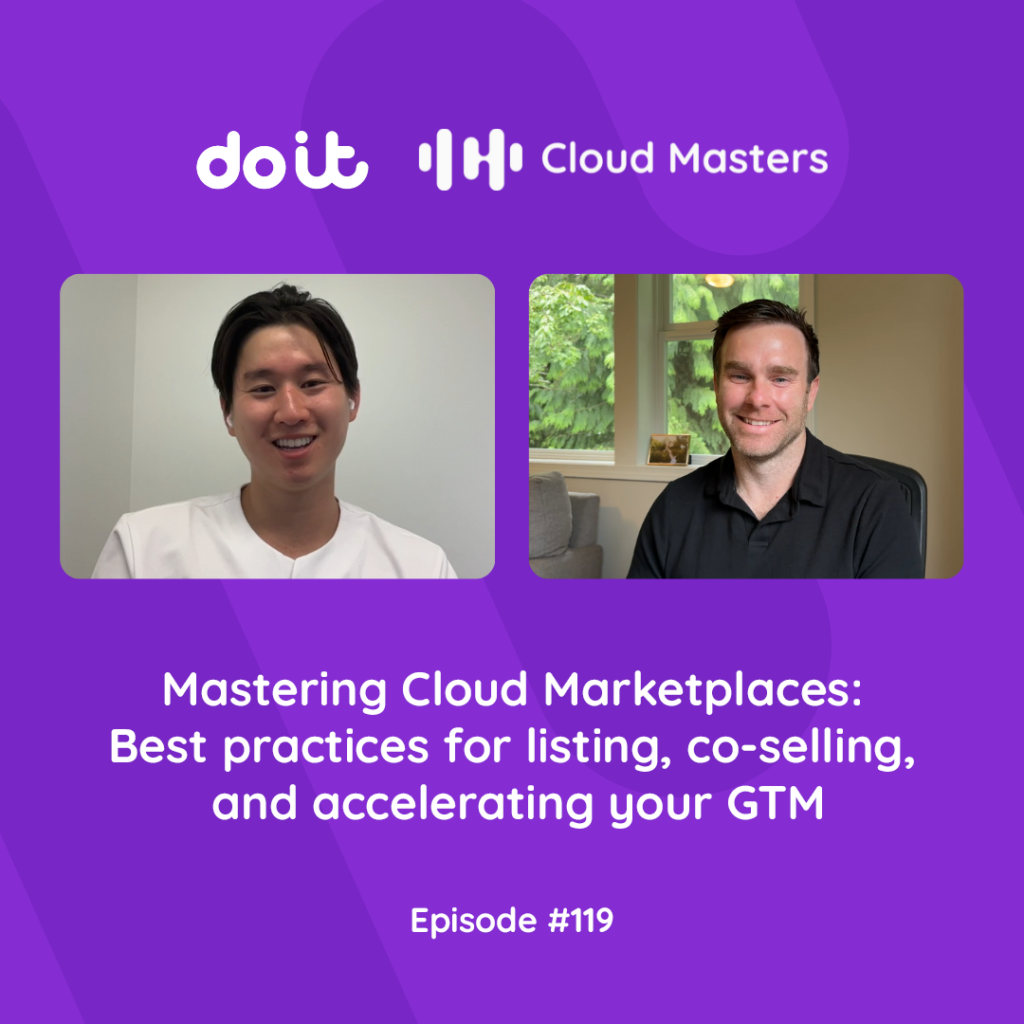
Everything you need to know about Cloud Marketplaces: Best practices for listing and co-selling, pitfalls to avoid, and lessons learned from our guests’ own experiences helping companies navigate marketplace listings.
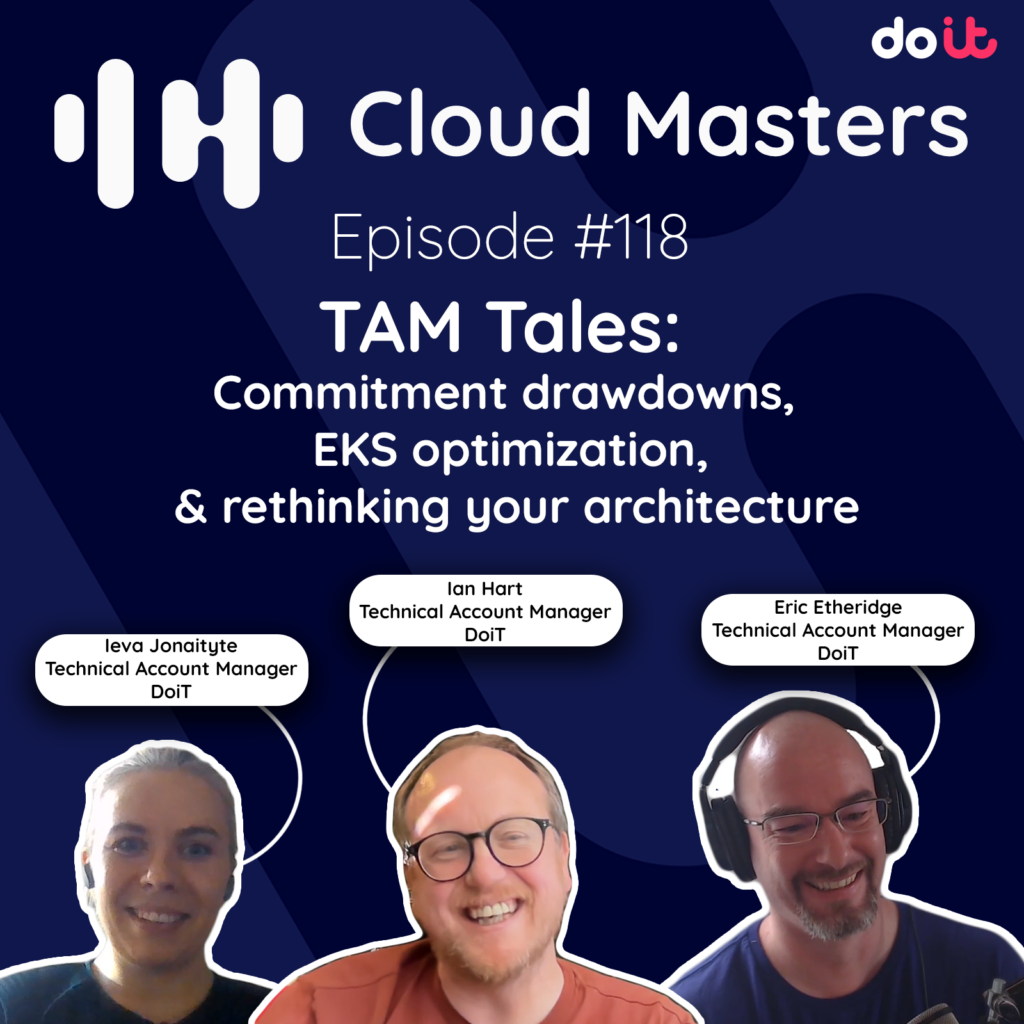
Three Technical Account Managers (TAMs) from DoiT share real-life stories about overspending on cloud and managing cloud commitment drawdowns, with practical lessons and strategies for optimizing your own cloud costs.
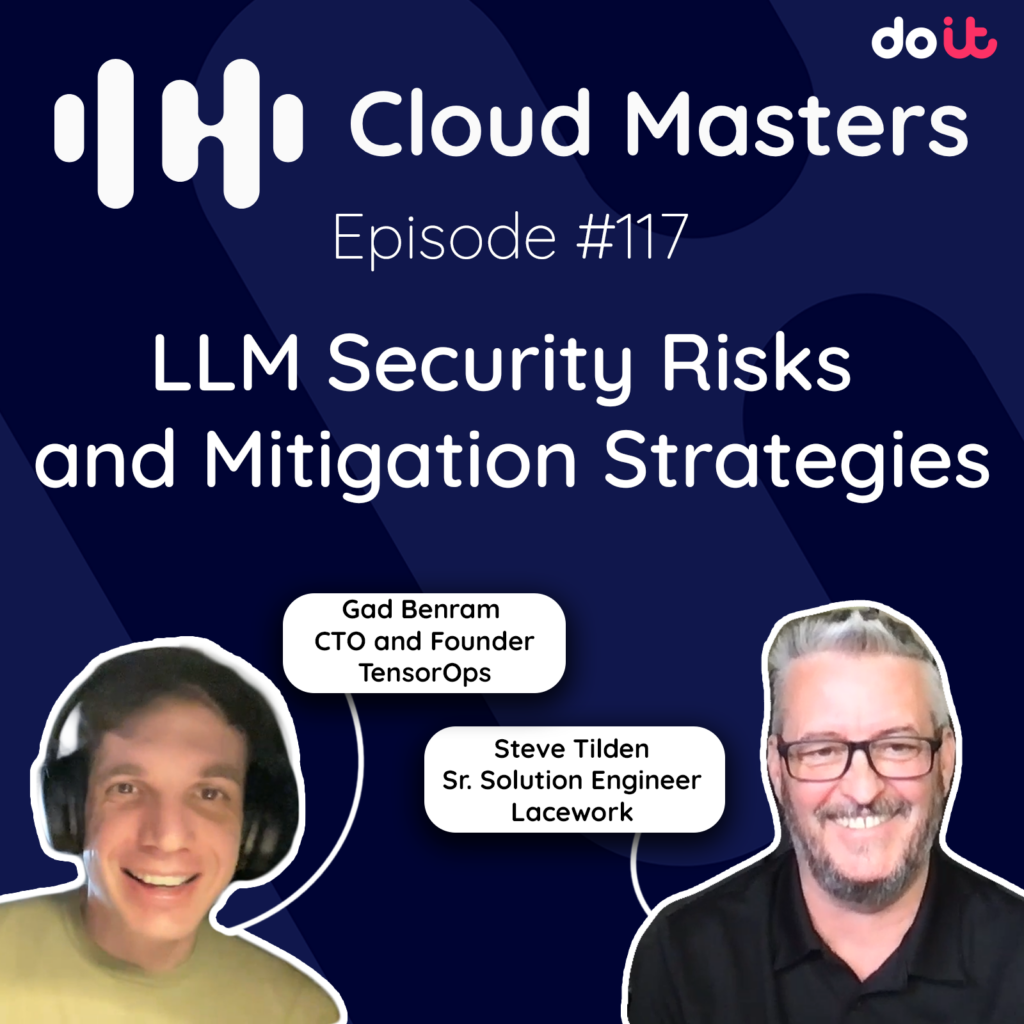
We discuss the top security risks to be aware of when implementing LLMs in your product, and how to prevent them from occurring in the first place.
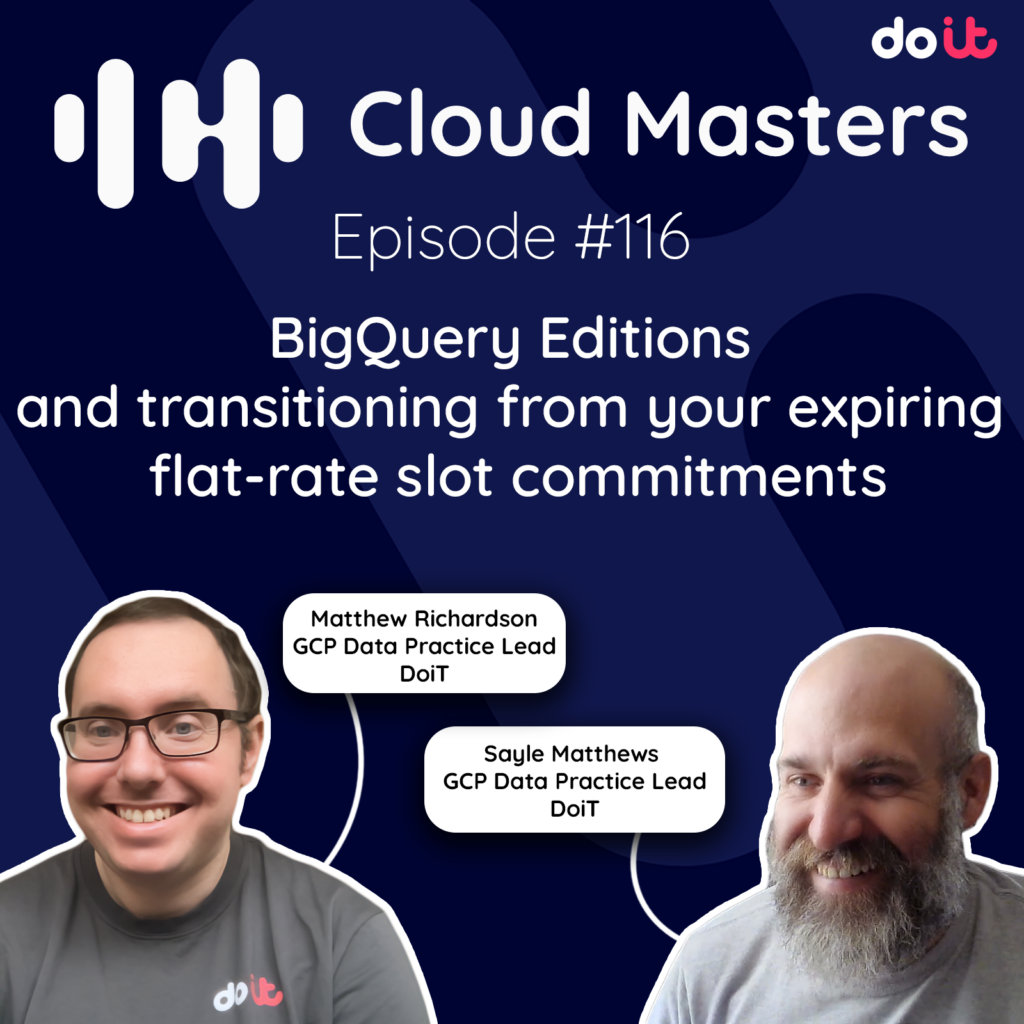
We’re joined by two BigQuery specialists to cover how to transition from flat-rate to BigQuery Editions and on-demand pricing without overspending.
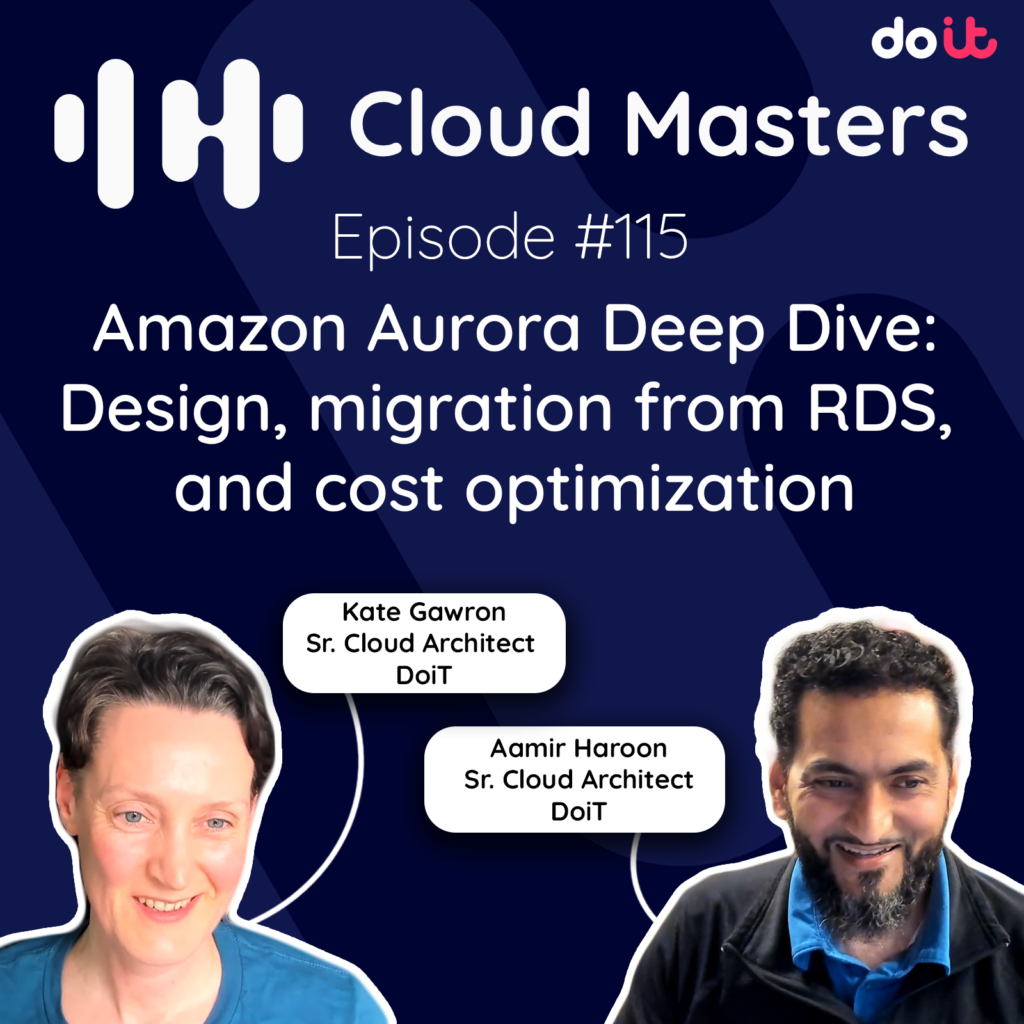
Covering when to use Aurora vs. RDS, common challenges when optimizing Aurora after migrating from RDS, I/O optimization and when I/O-optimized makes sense, and how to architect your Aurora databases for cost optimization.
From cost optimization to cloud migration, machine learning and CloudOps,
we’re here to make the public cloud easy.
From cost optimization to cloud migration, machine learning and CloudOps, we’re here to make the public cloud easy.
Ready to get started?
You will receive a calendar invite to the email address provided below for a 15-minute call with one of our team members to discuss your needs.